The Project
PILOT is a student organization founded in 2010 with the mission of empowering students from underrepresented communities. We work to develop campus leaders through various project initiatives, one of which is Dreams2Reality. Dreams2Reality is a social justice outreach program that hosts bi-weekly workshops with first- and second-year Metro Detroit high school students that center around different social justice topics, as well as on-campus Dream Day. Our program aims to build community between multi-ethnic students of African, Latinx, Asian, Middle Eastern, and European descent from under-resourced high schools, to promote social awareness and consciousness about topics including, but not limited to, social identities, privilege, and discrimination. By exposing the students to these issues at a young age, Dreams2Reality provides a space to develop leadership skills and empower students to continue having conversations within their communities. Through this program, students are not only encouraged to become young leaders by driving their own dialogue, but they are also urged to initiate relationships with University of Michigan students and the college-going culture. Our participants engage with community partners, such as University faculty and staff, as well as school and organization leaders. Our members from these communities recognized the need for a program that bridges the gap between these areas and provides students the opportunity for a social justice education they would not receive otherwise.
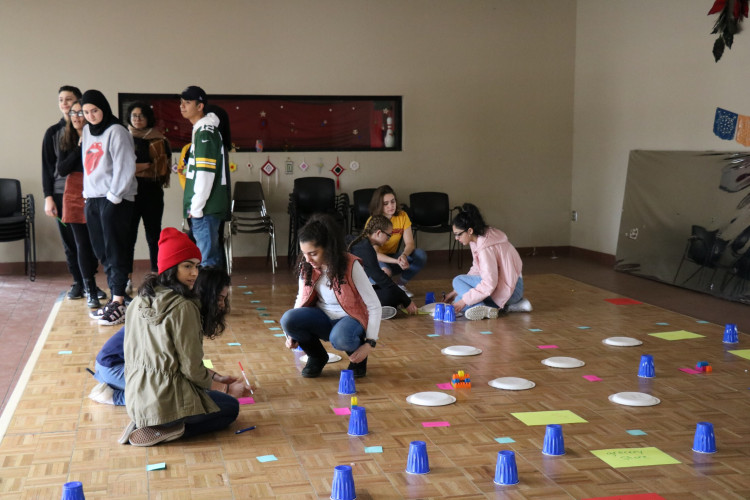
Before the dialogue portion of our workshops, we hold content-based presentations and small group lectures. These include important historical events that may contribute to the greater understanding of why the students’ communities are the way they are and the roots of institutional discrimination. Additionally, we bring in contemporary academic content that helps participants become more aware of allyship and respectful understanding and embracing of other cultures, in efforts to introduce them to the differences and similarities of various cultural backgrounds.
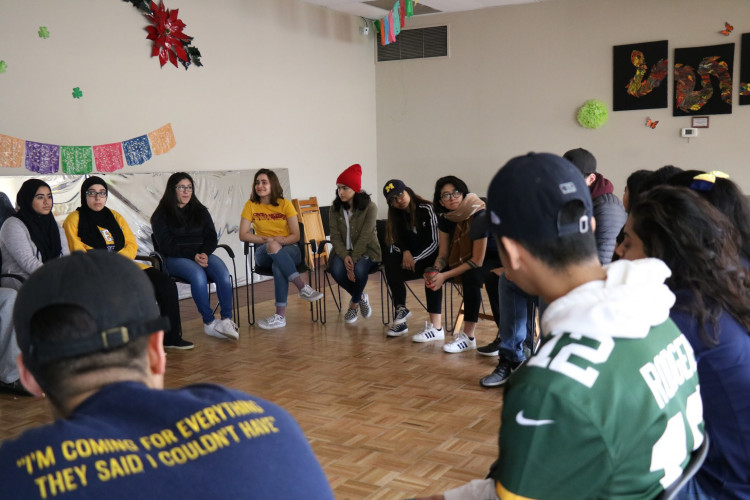
Although dialogue is an important factor in the success of the program, we work to implement various group projects to increase engagement with one another and engage participants in individual conversations they probably would not have had in a group dialogue. Group projects have also provided a lot of laughter and enjoyment while interacting with difficult topics. It is extremely important for us to remind the students that learning about social justice does not have to be emotionally draining; rather, it can be an opportunity to bring out the best in each other.
Our program was unfortunately cut short by Covid-19, but we were able to host 3 workshops with the students this year. The first workshop was titled “Discovering Identities,” and its purpose was to allow the participants to get to know each other, as well as reflect on their and others’ identities. Students participated in a Concentric Circles activity and a Blank Face activity. The second workshop was centered on stereotypes and microaggressions. The main activity of the day involved participants analyzing television scenes and other media sources in order to identify examples of stereotypes and discuss the consequences these stereotypes may have. The last workshop focused on urban inequality, during which we participated in dialogues about redlining, policing in urban areas, educational inequities in students’ communities, and other related topics.
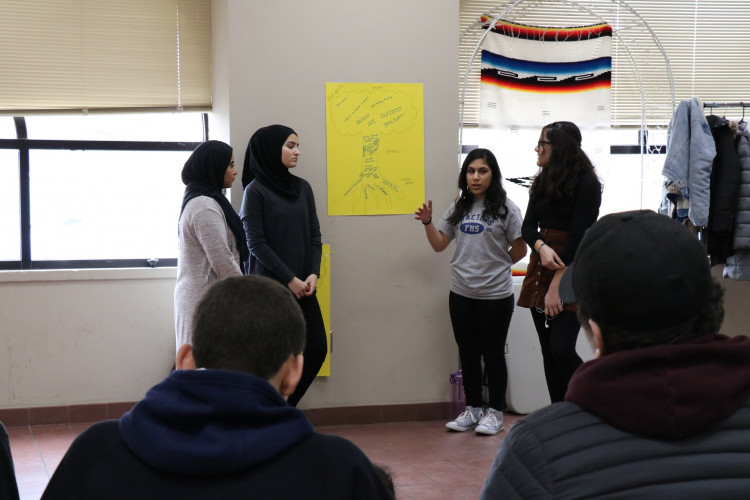
Next Steps
The continued success of Dreams2Reality is dependent on the important partnerships we form with University staff members, as well as the feedback we receive from our participants. We expect our participants to gain a better understanding of social justice issues in their communities and neighboring areas. We work with the students to develop their leadership and communication skills, and we encourage them to use the resources and knowledge they gain to continue projects in their communities. In the past, our participants have shown greater understanding about specific issues. For example, during the first workshop, less than half of all students were familiar with microaggressions and the effects that income inequality has in society. In comparison, during Dream Day, more than 80% of students reported their understanding of these issues. A few students started social justice clubs at their schools using the information and skills they gained through Dreams2Reality. We hope to continue to achieve this success as we strive to reach more students from a wider range of schools.
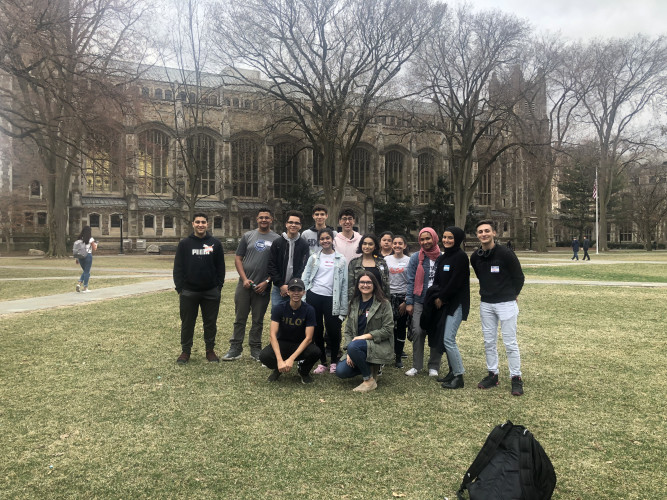
Dream2Reality implicitly serves as a strong pipeline program to the University of Michigan. We are working closely with young adults from early high school to engage with them on social justice topics. Simultaneously, we are instilling an excitement for college, specifically the University of Michigan, in the students with whom we work. The students we work with will generally be first-generation college students, and most of our D2R members are also first-generation college students. Thus, having current first-generation college students at the University of Michigan as mentors and facilitators to look up to will generate positive externalities to these students and will allow the students to see themselves as future University of Michigan students. Moreover, some of our past participants have moved on to participate in our other programs such as Maize and You, which supports high school seniors from underrepresented communities through navigating the U-M application process.
The library grant has been vital to the success of our program. Our library mentor has been extremely supportive of our project, and we are proud to have received positive acknowledgement from the library. Our mentor talked through the workshops with us, and provided guidance on selecting future workshop topics and activities. The funds we have received have allowed us to host our workshops. Members of the D2R committee drove to Detroit for each workshop, and a portion of the funds were used to cover transportation costs. The grant also provided funds for lunch for all of our participants and volunteers during each workshop, as well as the materials used for all of the activities.
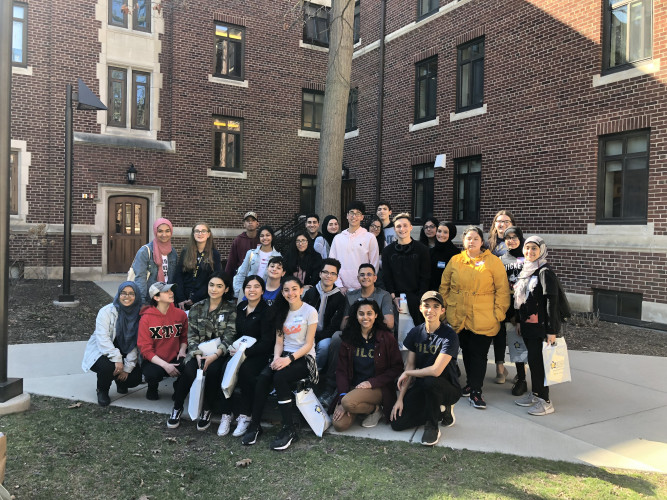
We plan to continue hosting the Dreams2Reality program in the next year, while reaching out to a wider group of students and attracting a larger group. Support from the University has been key to our program’s success and we are thankful for the Library’s grant.
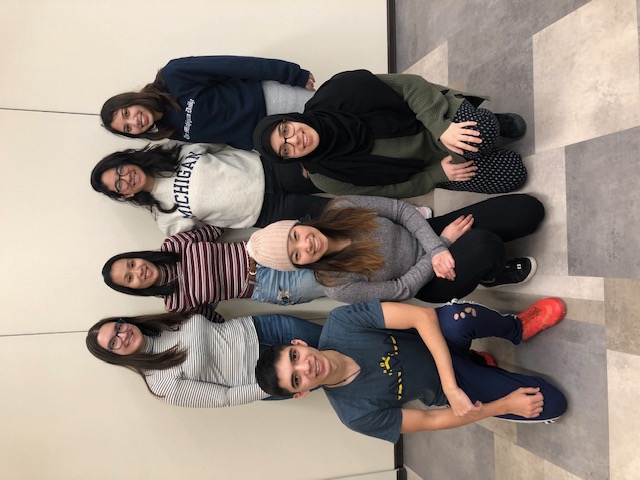
Una Jakupovic is a member of the Dreams2Reality Committee and is currently an Undergraduate Student studying Economics at the University of Michigan